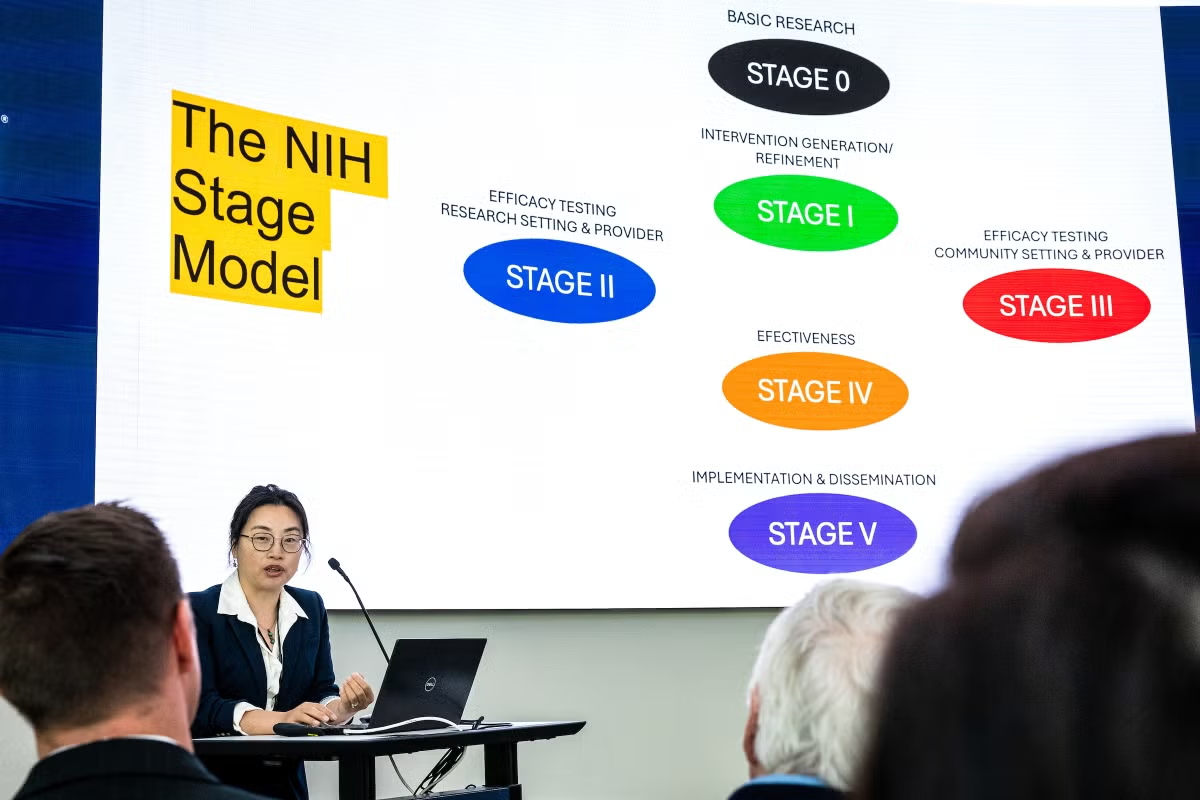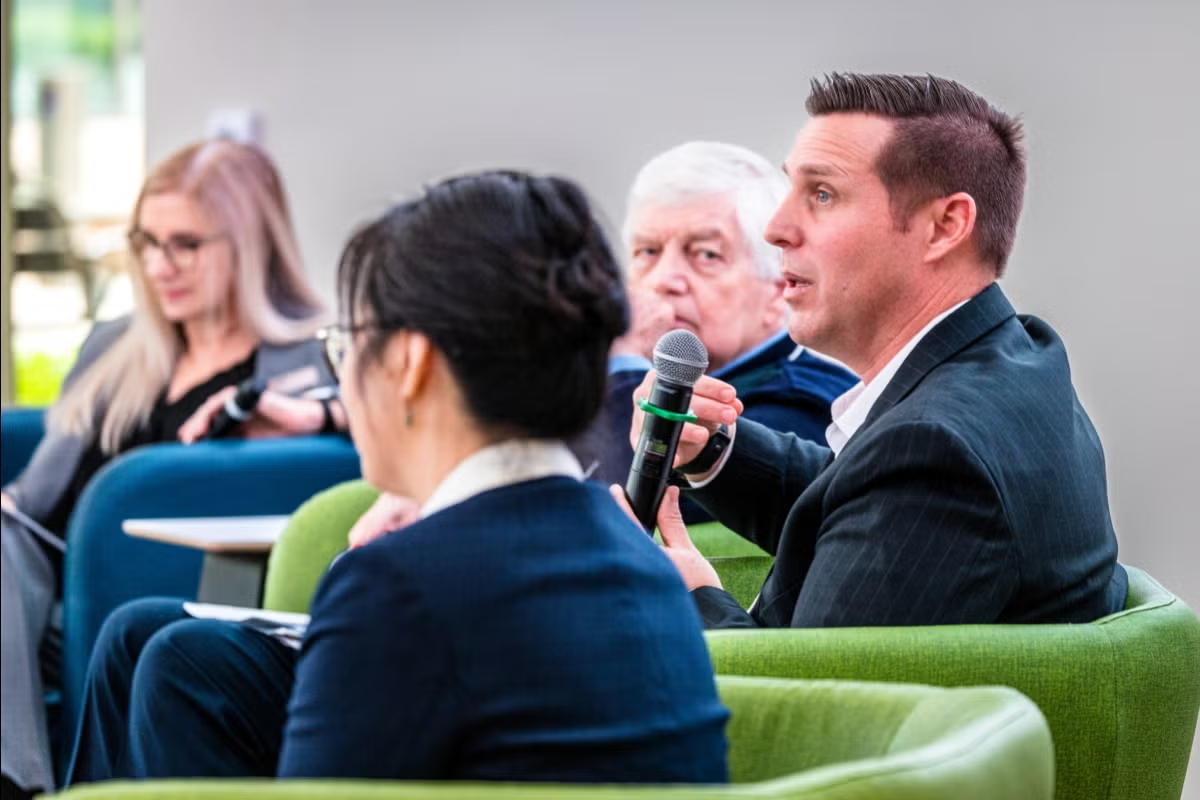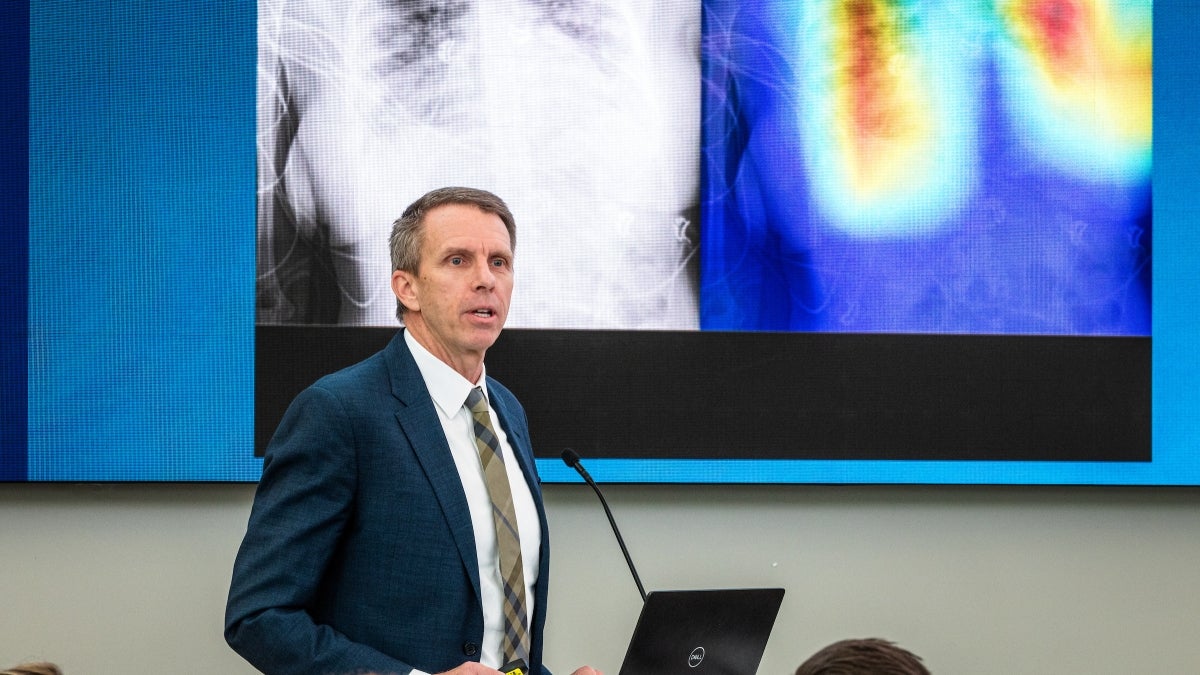Digital health technologies are advancing rapidly, but a human-centered approach is crucial to ensure everyone benefits from these innovations, according to speakers at the inaugural ASU Digital Health Summit. The event, held at the ASU Thunderbird School of Global Management in Downtown Phoenix, explored a range of topics, including how digital tools can improve healthcare for diverse populations.

Craig Norquist, a physician and the chief medical information officer for HonorHealth, gave the final keynote of the inaugural ASU Digital Health Summit on Friday.
Michael Yudell, interim dean and professor in the College of Health Solutions at Arizona State University, emphasized the necessity of incorporating social and behavioral sciences into digital health initiatives. “If we rely only on the technology, we’re going to go nowhere,” he said. “We need the social-behavioral scientists to understand the impact of these technologies, how they intersect with different types of communities and how they will help or perhaps harm the most vulnerable among us.”
Digital Tools for Older Adults
Matthew Buman, professor in the College of Health Solutions, highlighted that older adults are increasingly open to using technology to support their health. He noted that lifestyle interventions are essential in preventing chronic diseases but can be resource-intensive. Digital health technologies offer a solution.
Buman collaborated with Fang Yu, professor and Edson Chair in Dementia Translational Nursing Science, to discuss studies where digital devices helped older adults and their care teams. One study showed that a combination of smartphone interventions – text alerts, rewards, and screen lockouts – reduced screen time by an hour daily.

Fang Yu, professor and Edson Chair in Dementia Translational Nursing Science in the Edson College of Nursing and Health Innovation, discussed her work on developing intervention models for older adults with dementia.
‘Digital Twins’ and Personalized Healthcare
Diane Cook, a professor from Washington State University, presented on the concept of “digital twins,” virtual representations of individuals created using data to predict how they would respond to interventions. These digital twins incorporate data on genetics, social interactions, and environment.
Cook offered an example of a patient with type 2 diabetes and cognitive decline and explained that digital twins could track their behaviors to identify opportunities for improved health. Challenges in this method include gathering comprehensive data, accounting for variables like multiple activities at once and ensuring data privacy.

Matthew Buman, Professor in the College of Health Solutions, participated in a panel discussion with other researchers at the summit.
Human-Centered Design and Equity
The summit also addressed the importance of designing technologies with a focus on ethics and health equity. Maissa Khatib, a research scholar in the College of Health Solutions, shared the Arizona Community Cohort Model, a framework designed to build trust and community ownership. She stressed the need to ensure equitable access to technology, such as laptops and high-speed internet.
Krystal Tsosie, assistant professor in the School of Life Sciences, discussed the work of the Native BioData Consortium, an Indigenous-led research institute. She emphasized the importance of group consent and of recognizing that the potential stigmatization of genetic data is a very real concern for tribal communities.
Beza Merid, an assistant professor in the School for the Future of Innovation in Society, cautioned against viewing technology as a simple solution, stating that technologies “don’t exist in a vacuum” and are designed by people who may have biases. He also gave the example of blood pressure monitors and how facial recognition technology can be inaccurate and is misused in racialized communities.
Integrating Innovation into Healthcare
Craig Norquist, an emergency physician and chief information officer with HonorHealth, urged the medical field to be more proactive in adopting digital health advances. He noted the evolution of athlete-focused wearable technology, such as watches that measure oxygen levels.
He also recounted how the continuous glucose monitor was revolutionary for people with diabetes and described how patients themselves innovated to make these devices more effective, despite initial resistance from regulatory bodies. Reflecting on the advances made during the pandemic, he concluded, “Continue to iterate, make it better, make it intuitive and make it work.”


